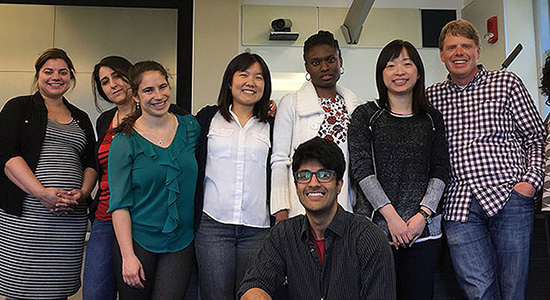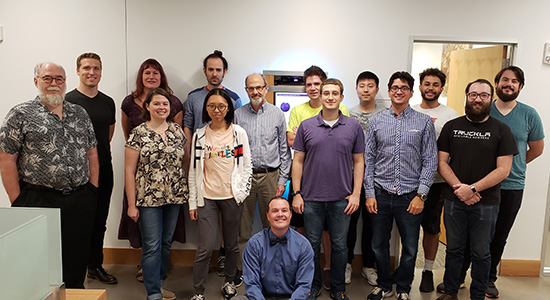Our Mission
The mission of the Center for Computer Science and Learning Sciences is to foster the exploration, dissemination, and application of research on learning and computation. On the computation side, technological advances continue to create new and exciting ways to both understand and support learning in all settings and in all stages of life. On the learning sciences side, research continues to advance our understanding of learning in a wide variety of context, leading to the design of innovative and highly effective learning environments.
Example areas of relevant research include computational modeling as a means to understand complex scientific phenomena, educational data mining, equity issues in computing, adaptive learning environments, and interaction design to support learning and mentoring.
Centers and Labs
The Center for Computer Science and Learning Sciences faculty run a variety of research centers and labs focused on exploring the possibilities of these two fields.
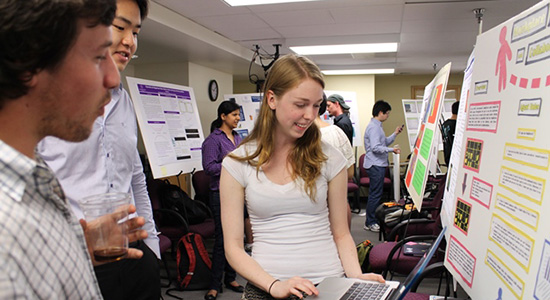
Northwestern's Center for Connected Learning and Computer-Based Modeling (CCL)
CCL is dedicated to the creative use of technology to deepen learning. Headed by Prof. Uri Wilensky, the center includes staff and students at Northwestern working together and in association with educational researchers, curriculum developers, software engineers, and model builders at Northwestern and other universities. The center is funded by Northwestern, the National Science Foundation, and a few commercial sponsors.
Recent efforts have focused on developing computer-based modeling and simulation packages and materials to enable learners to explore, construct, and revise models across a wide variety of natural and social domains. The NetLogo multi-agent modeling environment and the accompanying Models Library cover phenomena in biology, chemistry, physics, earth science, economics, history, sociology, business, medicine and other domains. These models can be explored and revised as part of model-based inquiry in middle, secondary and undergraduate classrooms as well as serving as the basis for research in more advanced settings. The CCL offers support to teachers and organizations that use our tools and/or materials, including periodic workshops for teachers.
Learn more about CCL
Tangible Interaction Design and Learning Laboratory (TIDAL)
TIDAL Lab creates and studies innovative technology-based learning experiences. TIDAL Lab projects are typically in science and computational areas, often for non-classroom experiences, such as museums and at-home play, and often involving tangible interactive elements, rather than just keyboard and touchscreen.
Recent projects include Strawbies, an open-ended tangible coding game for iPad and Osmo, Green Home Games, a set of activities to trigger family discussion of energy tradeoffs, the Build-a-Tree Exhibit on evolution at California Academy of Sciences in San Francisco, Roberto, a computer literacy stickerbook, among many other projects.
Learn more about TIDAL LabQualitative Reasoning Group (QRG)
The QR group does core research on models of human cognition, focusing on qualitative reasoning about physical systems, learning by analogy, and learning from natural language texts and diagrams.
From this foundational research, the QR group has developed a number of sophisticated tools for education. CyclePad, the first articulate virtual laboratory, enables students to construct and analyze a wide variety of thermodynamic cycles. A hypertext explanation facility provides the student with access to the chain of reasoning underlying the derivation of each value. CyclePad is currently being field-tested in undergraduate engineering classes at Northwestern University, The U.S. Naval Academy, and Oxford University. CogSketch is an intelligent platform for implementing systems to understand student sketches, such as physics and math problems, geology formations, and others.
LEARN MORE ABOUT THE QR GROUP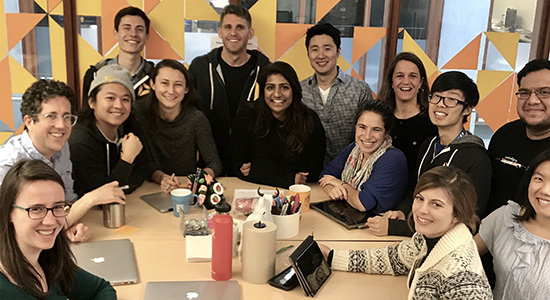
Delta Lab
Delta Lab researchers study, design, and build systems in the domain of social and crowd computing, human computer interaction, learning sciences, civics, and innovation. The primary goal of the Delta Lab is to teach people how to be outstanding designers and researchers capable of building excellent theory and eloquent systems.
A number of Delta Lab project areas focus on innovative learning environments. Cognitive Games for Civics embed intelligent computer tutors in game-like environments to teach policy argumentation skills. Games include Policy World, Political Agenda, and State of Nature. Growth Mindset Learning Environments explores new methods of promoting the growth mindset in digital learning environments. In the domain of K-5 math, they have designed a brain points incentive structure for the game Refraction, and are now extending this approach to the domain of introductory computer science. Readily Available Learning Experiences (RALE) help students and professionals learning software development overcome knowledge gaps by making the entire web of professional examples into resources for authentic learning. The Digital Loft is a digital studio for orchestrating project-based learning cycle, especially in civic innovation networks. The Loft helps network leaders and classroom teachers orchestrate real-world, project-based, civic innovation learning.
Learn more about Delta Lab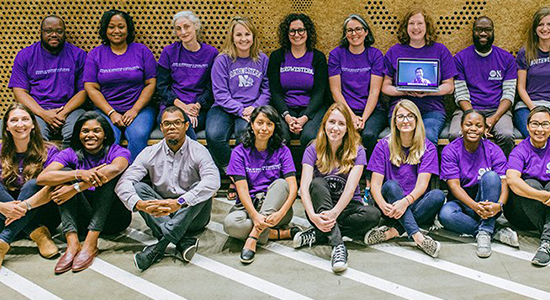
Office of Community Education Partnerships
The School of Education and Social Policy’s Office of Community Education Partnerships (OCEP) bridges Northwestern University’s research, practice, and service missions. Co-directed by Nichole Pinkard (PhD98), associate professor of learning sciences, OCEP creates and powers initiatives and partnerships that positively impact our home communities of Evanston, Chicago, and beyond.
One such program, STEAMBassadors, trains Black and Latino young adults from two-year and four-year colleges to work with middle schoolers in science, technology, engineering, arts, and math (STEAM)-related subjects. An expansive partnership between Northwestern University’s School of Education and Social Policy, DePaul University, City Colleges of Chicago, the Chicago Park District, Project Exploration, and dozens of other community organizations, STEAMbassadors equips college students with the foundations of computer science, including coding, digital making, and computational thinking. The program operates on the STEAMville platform, which was designed by Pinkard. It also features programs developed by Northwestern faculty, including Uri Wilensky (NetLogo), Reed Stevens (FUSE), and Mike Horn (TunePad).
Learn more about OCEP
Related Academic Programming, Centers, and Labs
Back to top

